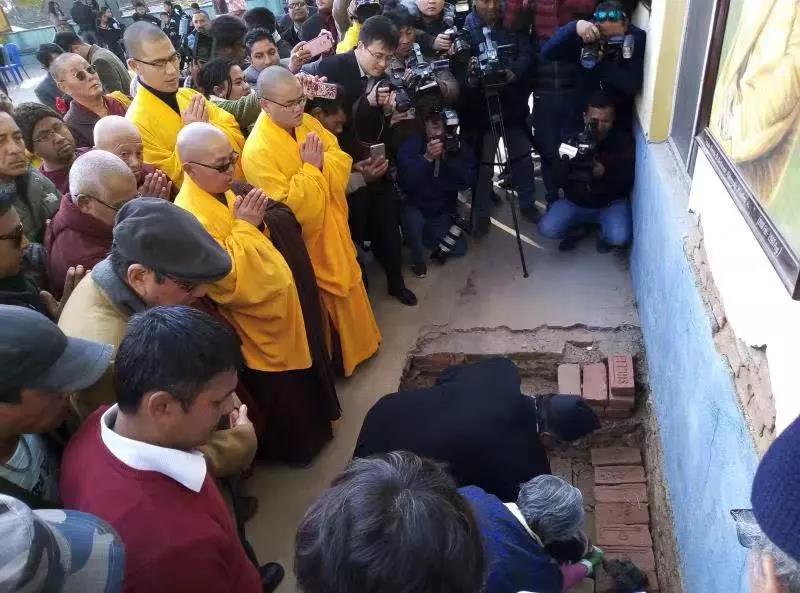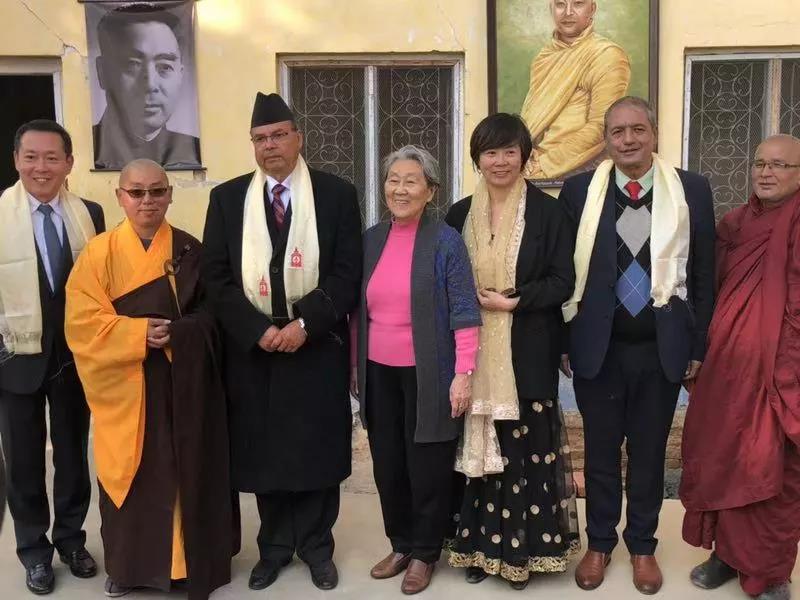Feature: Nepal begins reconstruction of school carrying history of late Chinese premier
Source: Xinhua| 2019-01-05
Nepal has started the reconstruction, with Chinese assistance, of a quake-damaged school building which carries a rich history of late Chinese Premier Zhou Enlai.
The foundation stone laying ceremony of Karuna Building of Anandakuti Vidhyapeeth School was conducted on Friday in Kathmandu by Jhala Nath Khanal, Nepal's former prime minister, and Zhou Bingde, founding president of China's Enlai Foundation and niece of Zhou Enlai.

The late Chinese premier had visited the school in 1957. With his support, the Buddhist Association of China later donated funds to construct the Karuna Building.

The building was severely damaged in the earthquake in 2015, and will be reconstructed with Chinese assistance again.
Jhala Nath Khanal said after the ceremony that he appreciated the assistance from China, adding that it will create bright future for the students.
"Anandakuti Vidhyapeeth is the symbol of Nepal-China friendship, and it will forever recall our age-old friendship. We are not just neighbors but development partners. I am thankful to China for this love and support," the former Nepali prime minister said.
The reconstruction project was initiated by the China Foundation for Poverty Alleviation, with the support of Enlai Foundation. Safa Sunaulo Nepal is the local partner to implement the project.

The school, located near UNESCO world heritage site Swayambhunath Stupa, was established in 1952. Among over a dozen buildings, the building named Karuna, referring to compassion, has been regarded as the hope to revive the glorious history of the school.
According to the China Foundation for Poverty Alleviation, the new two-storey building will have six quake-resistant modern classrooms.
"We are very glad to receive the assistance from China after many decades. We believe that it's a turning point for our school to revive its glory," Sujan Bajracharya, principal of Anandakuti Vidhyapeeth School, told Xinhua.
Thirty-nine-year-old Bajracharya, who himself graduated from the same school, said they also planned to establish a language and cultural center in the school with China's support in future.
On the occasion, Nepal's Vice President Nanda Bahadur Pun sent a letter with his best wishes for the success of the project, terming it as a historical event.

Speakers of the event expressed the hope that the school will serve the community by offering education and enabling students to have a bright future.
Yang Shichao, political counselor of the Chinese Embassy in Nepal, said the school building reconstruction is a new chapter in China-Nepal relations.
The event was attended by around 300 Chinese and Nepalese, including those who graduated from the school decades ago.
One of the alumni, 75-year-old Professor Bhadra Man Tuladhar at Kathmandu University, shared his memory of welcoming Zhou Enlai back in 1957 when he was a student.
Reconstruction of Karuna Building reflects the compassion of the late Chinese premier, said Tuladhar, adding that "I am hopeful that this step will create a bright future and livelihood for many students."
Another alumni member Anoop Ranjan Bhattarai, now the president of the Organization for South Asian Regional Friendship and Cooperation with China, expressed gratitude for China's support.
"I have so many memories with the school, which had produced capable manpower in different fields in the past. I hope this step will contribute to reviving the glory of our school," Bhattarai told Xinhua.
